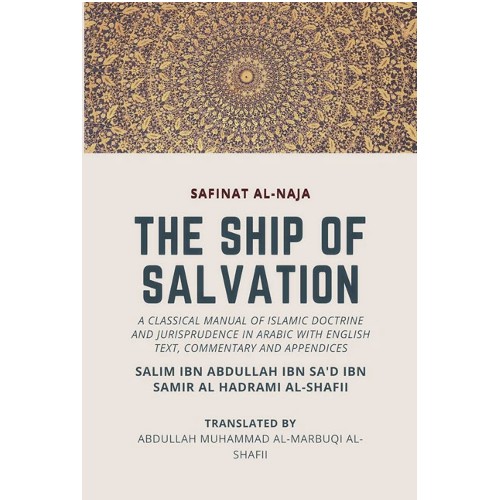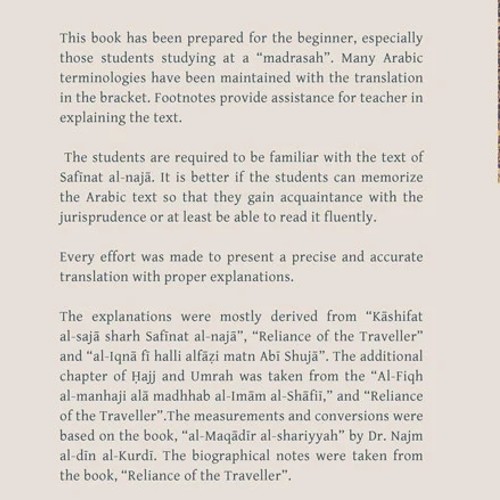Pilgrims’ Handbook: A Comprehensive Manual to the Rites of Hajj and Umrah
Classical and contemporary scholars have written numerous works on the rulings of Hajj and ‘Umrah, some extensive and others concise. The book in your hands, compiled by our esteemed Sheikh Dr. Abdul Muhsin al-Badr, is considered one of the most comprehensive and precise masterpieces. It explains all necessary rulings regarding the rituals of Hajj and Umrah based on authentic sources, including the Qur’an, the Sunnah, and the narrations of the Companions. This edition is presented in a modern and visually appealing format to facilitate understanding and visualization for the pilgrims, Insha Allah.
The Mukhtasar Al-Quduri
The Mukhtasar Al-Quduri is one of the most celebrated and influential treatises in any Muslim school of methodology and thought and is the foundation for the Hanafi school.
It is both the first source for scholars and a manual for the general reader.
This is its first ever complete translation in English.
2IN1 Combo P02
1. Man Made Laws Vs. Shari‘ah (384 pages)
2. Traversing the Highs and Lows of Muslim Marriage (195 pages)
2IN1 Combo P05
1. Muharramat Forbidden Matters Some People Take Lightly (127 pages)
2. Women around the Messenger (364 pages)
75 Questions & Answers on Hajj & Umrah by Darussalam
Key Features:
– 75 questions and answers on Hajj and Umrah, written in simple language and to the point- Hajj by the Prophets – Salient Features- Arabic words to help a pilgrim (hajji to communicate in Arabic during Hajj period- Flowcharts / figures to explain the important points regarding Hajj . Umrah- Chapter on selected supplications (Dua)
A Critique Of The Ruling Of Al-Taqlid (Dar ar Arqam)
Abu Dāwūd stated that Aḥmad said to him, “Do not make taqlīd of me, nor Mālik, al-Shāfiʿī, al-Awzāʿī or al-Thawrī; rather take from where they took.” [Masāʾil al-Imām Aḥmad (pp.276-277).
Nawāb Ṣiddīq Ḥasan Khan relays, “He was the judge of the congregation, the shaykh of al-Islam, the muhaqqiq, the ʿallāmah, the imām, the sulṭān of the ʿulamā, the imām of the world, the seal of the ḥuffāẓ (i.e. major ḥadīth scholars) without dispute, the proof for debaters, the supreme in isnād and the foremost within the domain of al-ijtihād. […] He did not see one similar to himself, and those who saw him did not see his likeness in knowledge and piety, and in standing for the truth with strength of character and preciseness of tongue. […] He gained proficiency within all the rational and textual sciences. This was to the point that he reached the apex of human understanding, his power of examination was acceded to by both friend and foe, his excellence in the sciences of ijtihād was acknowledged, and [he became] the one to clarify the matters of subtlety within the religion. […] From his works is Nayl al-Awṭār Sharḥ Muntaqā al-Akhbār of Ibn Taymiyyah, in four volumes. The eye of time has not been adorned with its likeness in examination, nor has the entirety of time granted its similitude in attention to the smallest of detail.” [Summarised extracts from his biography in al-Tāj al-Mukallal (443-449)]
The author states, “One of the researching scholars amongst the people of knowledge requested me to compile a treatise for him that would contain affirmation of the truth regarding al-taqlīd, as to whether it is permissible or not, in a manner that no doubt would be left after it nor objection to it would be accepted. Since the questioner is one of the eminent scholars, the response will be in the manner of ilm al-munāẓarah (the science of dialectics).”
























